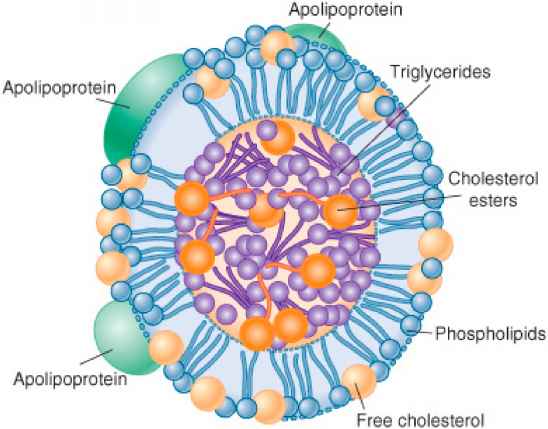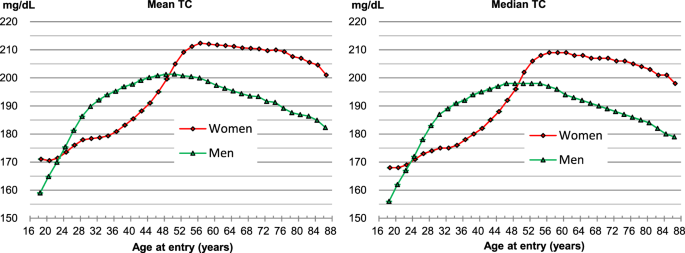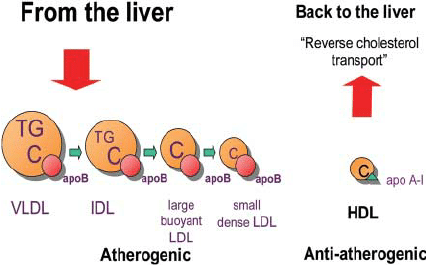Is High Cholesterol Bad for your Health?

Let's debunk some common misconceptions about cholesterol.
What does cholesterol do?
Cholesterol is a very important molecule which circulates in our body and is necessary for essential functions.
- It is the component that provides fluidity and stability to our cell membrane, allowing it to remain intact.
- Cholesterol is a building block for vital hormones like sex hormones and cortisol. These are necessary for stress response and reproduction.
- It serves to convert molecules made in the skin from sunlight exposure to assist in conversion to vitamin D.
- It is a vital component of the covering of our nerve cells called myelin, which assists with nerve impulse transmission.
- It also plays a role in wound healing and tissue repair
How does our body transport it?
The cholesterol molecule is not water soluble and needs to be packaged in a Lipoprotein molecule in order to be transported in the bloodstream. There is a Lipoprotein which surrounds cholesterol so we can transport it in the blood and it is this protein molecule is associated with heart failure. High cholesterol does not cause heart disease.

These lipoproteins appear on your cholesterol panel.
LDL - Low density Lipoprotein
VLDL - Very low Density Lipoprotein
HDL - High density lipoprotein
and also Triglycerides.
Our bodies can regulate how much cholesterol it needs and when we have too much, we poop it out. Some people have higher cholesterol compared to others based on their genes. There are many studies which show a high cholesterol level in individuals of advanced age have no adverse cardiovascular outcomes.

Total cholesterol does not really matter. If a doctor says your total cholesterol is too high, ask them why it matters and what it means.
Why?
They linked LDL levels to heart attacks and strokes through past research. But, the harm caused by them is because of lipoproteins, not cholesterol.
There are two types of LDL components. The harmful LDL is called small density LDL, and this is the lipoprotein, which is associated with heart attacks. The other LDL is called large buoyant LDL, and we do not relate this lipoprotein with cardiac events.

So, why is the small density LDL not on a standard cholesterol blood test?
Very good question.
Typically, insurance does not cover the cost, but you can request to have it done if your doctor is aware or knows about it.
What this means, by itself, a high LDL number does not tell us anything about our risk of heart attack or stroke.
How to interpret your LDL
We can not tell what the breakdown of the LDL ratio is without further testing. For example, if you have LDL of 180 and 80% are large buoyant LDL but 20% are the bad SD-LDL, then your cardiac risk may not be significant.
LDL numbers need to be assessed based on other markers in your blood specifically related to your metabolic health. LDL levels, which are very high in a metabolically healthy individual, probably mean you are at a very low risk of a heart attack or stroke.
What Increases your cardiovascular risk?
You must have markers for poor metabolic health to move into the category of people at high risk for cardiac events.
What is poor metabolic health? Examples include central obesity, high blood pressure, insulin resistance, and fatty liver disease.
So what is the point of getting a fasting cholesterol blood test?
Here, let me explain.
What really matters are your numbers for the Triglycerides and HDL.
The ratio of Triglycerides/HLD is a poor mans test to determine metabolic health. If your ratio is < 1.5, then you are unlikely to have poor metabolic health, but if your ratio is greater than 2.5, then you likely have a metabolic syndrome.
What causes poor metabolic health?
Excessive intake of processed sugars and carbs, rather than cholesterol, leads to poor metabolic health. High cholesterol isn't the cause of heart disease. The misunderstanding caused overuse of cholesterol-lowering drugs and confusion about how cholesterol is linked to heart disease..
To get an accurate view of your heart health, we need to focus on other modifiable risk factors that have a greater impact on heart attacks or stroke.
We need statin medications for a very specific subset of individuals. They do have a place in medicine.
Let's look at a hypothetical example using a cholesterol panel.
A person has a total cholesterol 0f over 240. Means nothing until we look at the other levels.
LDL is 170
VLDL is 30
HDL is 40
Triglycerides are 300
Triglyceride/HDL ratio = 7.5
This patient has a relatively high LDL level, but the more concerning number is the Triglyceride/HDL ratio, which is sky high. The person has severe metabolic syndrome.
A statin can reduce cardiovascular risk and mortality for them, mainly because of metabolic syndrome, not high LDL.
But...
Statin medications come with a varying range of side effects. Some studies show they may cause cognitive impairment and may even increase your risk of diabetes.
If this patient improves their metabolic health, we should take them off the statin medication when the ratio improves.
How do we enhance and strengthen our metabolic health? We must use our natural built-in protective mechanism, which our bodies have developed over millions of years of evolution.
Aerobic exercise
- It helps to lower blood pressure, stress and LDL levels, while increasing HDL and improving blood sugar regulation.
- It also enhances blood vessel resilience.
- At minimum 75 minutes per week total. Ideally, spread across most days of the week. It needs to be vigorous-intensity activities include. Pick your favorite activity (aerobic dancing, running, fast cycling, and swimming?)
Eating whole foods
- Avoid consuming highly processed carbohydrate and sugars.
- Low carb/sugar diets and increase protein intake. This will improve your metabolic health.
- Certain foods can reduce inflammation and protect your heart, like berries, green tea, tumeric, cinnamon, and fatty fish.
- You need 7-8 hours of high quality sleep.
- You heal while you sleep and without consistent high quality sleep; it throws your body into cellular chaos
Reducing alcohol intake and cigarette smoking.
- Both disrupt sleep function
- Both create oxidative stress, which leads to damage to the heart.
- Limit intake or completely avoid
Weight loss
- Central obesity associated with a high risk of cardiovascular disease.
- Losing weight by targeting belly fat and fat around organs is essential.
- Excessive fat leads to chronic inflammation and metabolic abnormalities
Overview
High cholesterol is not the enemy.
Small dense LDL is the bad molecule which causes heart attack and strokes
The better assessment of cardiovascular risk and stroke is the triglyceride/HLD ratio. A higher HDL is cardioprotective.
If you want to lower your cardiovascular risk, we need to treat metabolic syndrome
Statin medications have a role in a very specific individuals.